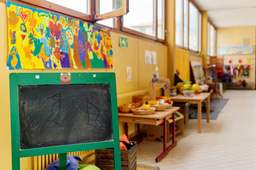The power of co regulation in those first weeks back

September and the start of term bring so many big feelings. For many neurodivergent children, walking into a new setting is a huge shift for the nervous system, new people, new routines, new sounds, smells, and expectations, it can feel so overwhelming.
And this is where we come in. Because no matter how carefully we’ve planned the environment, or how consistent our routines are, children will still experience moments of dysregulation. What matters most is how we show up for them in those moments.
What does effective co-regulation look like?
Know the child:
Every child communicates differently when they’re overwhelmed. Some go quiet, some become physical, some run, some crumble. The key is noticing their cues and remembering it’s not misbehaviour, it’s communication.
Know what they need:
Do they need space, deep pressure, calm words, or simply presence? Do they need to move or to curl up? What helps their nervous system feel safe again?
Hold space:
Being a co-regulator doesn’t mean fixing or stopping the emotion. It means being with them in it. A calm and balanced adult nervous system offers safety. Your steady breathing, your grounded presence, your soft tone, these are powerful signals of security.
Prioritise connection over correction:
In the heat of the moment, it’s not about teaching, reasoning or problem-solving. It’s about saying, through your actions as much as your words:
✨ “You are safe.”
✨ “I’m with you.”
✨ “We’ll figure this out together.”
Why connection matters most
Co-regulation is more than a strategy. It’s a relationship. Over time, children learn not just to manage their emotions, but that they are worthy of care in the middle of them. That is what builds belonging. That is what makes regulation possible.
So as the term begins and big feelings rise, remember: you don’t need to have the perfect words or the perfect plan. You just need to show up, stay steady, and stay connected.




Please sign in or register for FREE
If you are a registered user on SEND Network, please sign in